https://www.gov.uk/early-years-foundation-stage
| Children’s ages | British National Curriculum 09:00 – 15:30 / 17:00 | Russian curriculum 15:40 – 17:50 |
| 2–3 | Pre-Nursery | Educational activities |
| 3–4 | Nursery | |
| 4-5 | Reception | |
| 5-6 | Year 1 | Preparation for school |
| 6-7 | Year 2 | |
| 7-8 | Year 3 | Comprehensive primary curriculum: part-time study 3–5 times a week |
| 8-9 | Year 4 | |
| 9-10 | Year 5 | |
| 10-11 | Year 6 |
Curriculum objectives
ENS works by immersion in an English language environment created by British native-speaker teachers.
Within this framework, English is both a subject of study and the main instrument of study and communication. The priority in EYFS is a holistic approach to children's upbringing and education, emphasising harmonious relations with other people and the world as a whole (personal, social and emotional well-being), self-esteem and self-confidence, independence, team spirit, and the ability to learn and grow independently, which are key to modern education at all levels.
To achieve these goals, we have:

Experts
Certified teachers from English-speaking countries, Russian-speaking teachers, psychologists, speech therapists, and sport trainers.

Small classes
As a rule, the school day consists of group and individual lessons. During lessons, children are often divided into subgroups of 4-8 (depending on age).

Development monitoring
A very important task in teaching is to monitor each child's successes and difficulties; therefore, scheduled one-on-one meetings take place twice a year between the teacher and the parents. At the end of the school year, parents receive a detailed report on their child's success with regard to 7 areas of development. The development of each child is monitored by a professional child psychologist who, in a playful way, not only solves psychological problems, but also identifies difficulties at each stage of development in a timely fashion.

Balanced timetable
A carefully planned, psychologically sound and balanced timetable motivates children to engage in learning and creative activity, and allows them to develop successfully.
Baby Club (age 1.5-3)
For the smallest children (age 1.5-3 years), the ENS successfully operates a Baby Club, which helps future pupils better adapt to the language and to the atmosphere of the English kindergarten, and to begin their education successfully.
Baby Club is a "language immersion environment", just like English kindergarten, but for a relatively short period of time: just 1.5 hours, twice a week. At Baby Club, little ones communicate with English-speaking teachers and with parents and peers, while playing educational games and making music. Children can adapt quickly to the Baby Club setting thanks to the warm and friendly atmosphere, the presence of a close relative, the small number of children in a group, and also the professional work of an experienced teacher who skilfully organises the children and holds their attention.
The child gets used to the ENS kindergarten, subsequent adaptation to the Nursery group (3-4 years) is much easier, they make a good start with English, and they grasp the kindergarten's rules and discipline.
EYFS early years curriculum (age 3-5)
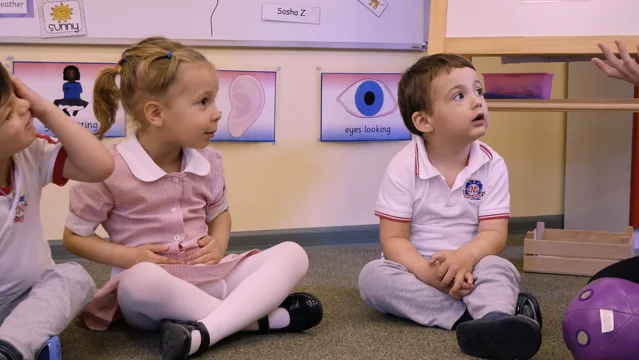
The basis of the bilingual educational programme for teaching English to preschool children in ENS is
Early Years Foundation Stage (EYFS) – the official British educational programme for preschool children (age 3-5). This programme was approved by the UK Department of Education in 2002, modified in February 2013, and is regarded as a new stage in the education of children aged 3 to 5. This stage of development is not only important in itself: it is also the foundation for children's subsequent education.
The EYFS programme includes 7 areas of development and 17 early learning tasks/aspects.
Key Stage 1 (age 5-7)
The foundation stage prepares children to start Key Stage 1 of the British National Primary Curriculum (BNPC) and is part of that system. In the UK, unlike Russia, children start school at age 5 and study from then on under the British primary school curriculum (British National Curriculum).
ENS students from 5 to 7 years old become schoolchildren and, in accordance with the British educational programme, begin to study under the British National Primary Curriculum, Key Stage 1.
In the primary grades of the British school, children study the world, mathematics, reading and writing, but still mostly in a playful way, as befits their age. Children aged 5-7 can also study to prepare them for a Russian school, if parents wish. Parents do choose to combine the two curricula, and their children go on to succeed in both international and Russian schools.
Key Stage 2 (age 7-11)
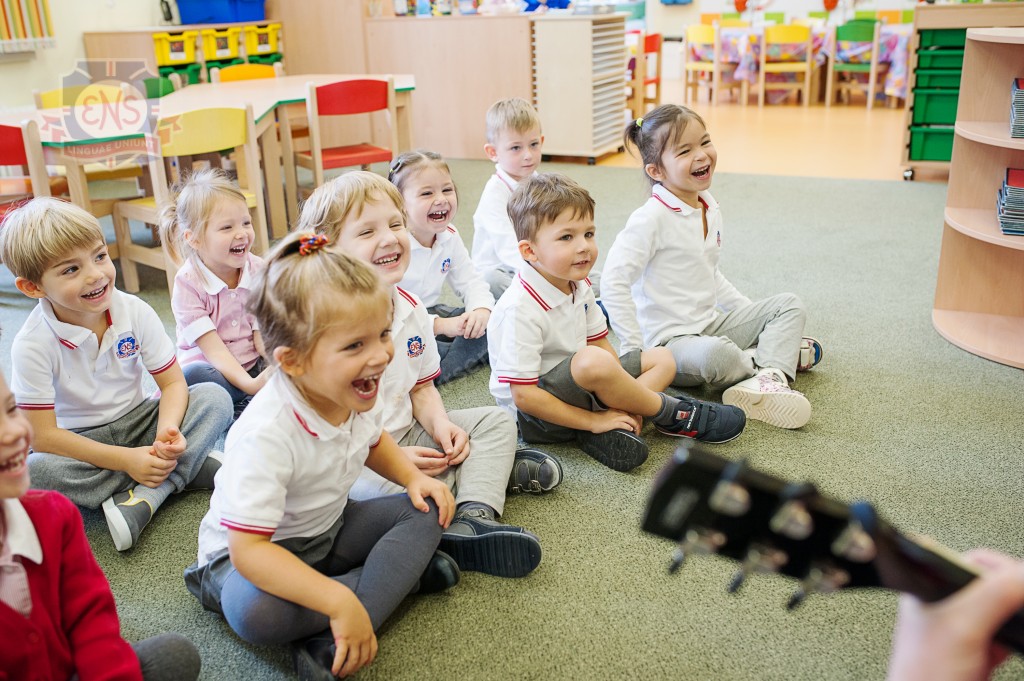
Children aged 7-11 progress to Key Stage 2 of the British National Primary Curriculum. Our students study under the British curriculum until 15:30 each day, and then after 15:30 and on Saturdays they attend classes under the Russian programme.
These pre-school and primary education curricula are the basis for teaching in the UK and are used in all international schools that follow the British education system.
ESL (English as a Second Language)
English Nursery and Primary School offers an ESL (English as a Second Language) programme for children aged 4-6 who do not know English. The main purpose of the ESL class is to prepare for the transition to lessons under the main British National Primary Curriculum.
This programme is an intensive course during which children learn English while acquiring basic knowledge and competence in reading, writing, and mathematics.
Interactive teaching methods are used in lessons: role-playing games, learning excursions, and modern creative teaching techniques. This makes it possible to achieve positive results and progress in mastering the foreign language, while developing the creative and physical dimensions of the child's personality.
Successful learning in the ESL class is aided by the professionalism of ENS's teachers, who take an individual and differentiated approach to each child.
Our Advantages
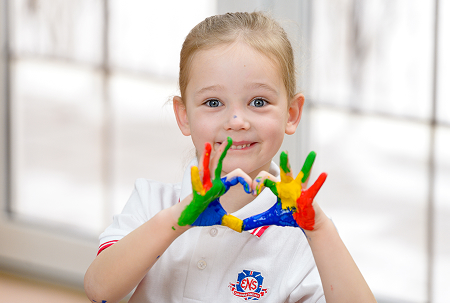
20 years of experience
5 campuses in Moscow and Moscow Region

Educated teachers from the English-speaking countries
With experience teaching in pressschool and schools
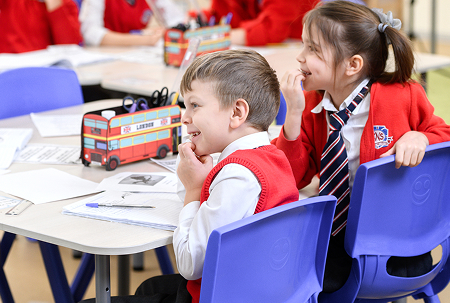
Fluent English
Bilingualism from early childhool
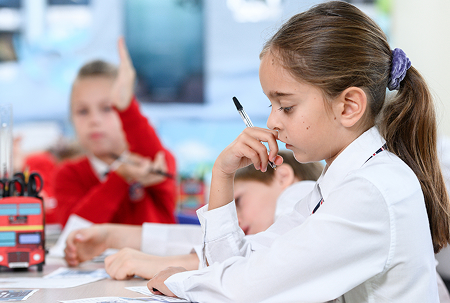
Comprehensive development
Music, sports, art
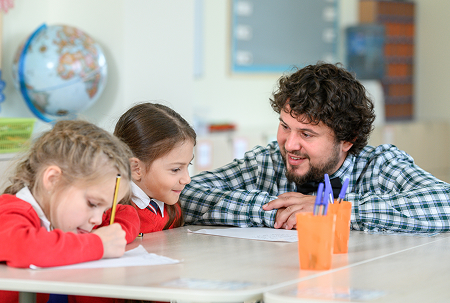
Psyhological services
We support the children's mental health and development
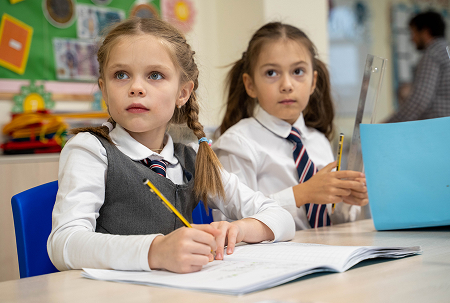
Speech therapy service
Our specialists are always there to support children's linguistic development
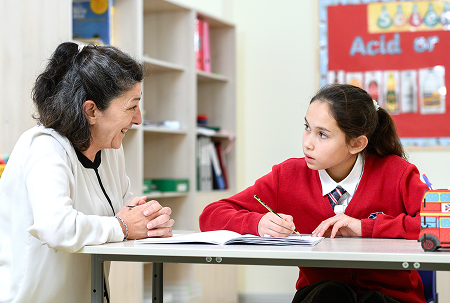
ENS Kitchen
The menu at ENS is prepared by a full team of nutritionists and chefs
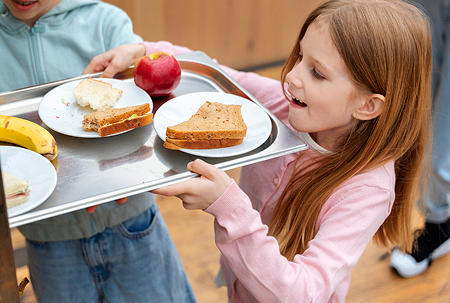
School uniform
Our students wear a stylish and functional school uniform



